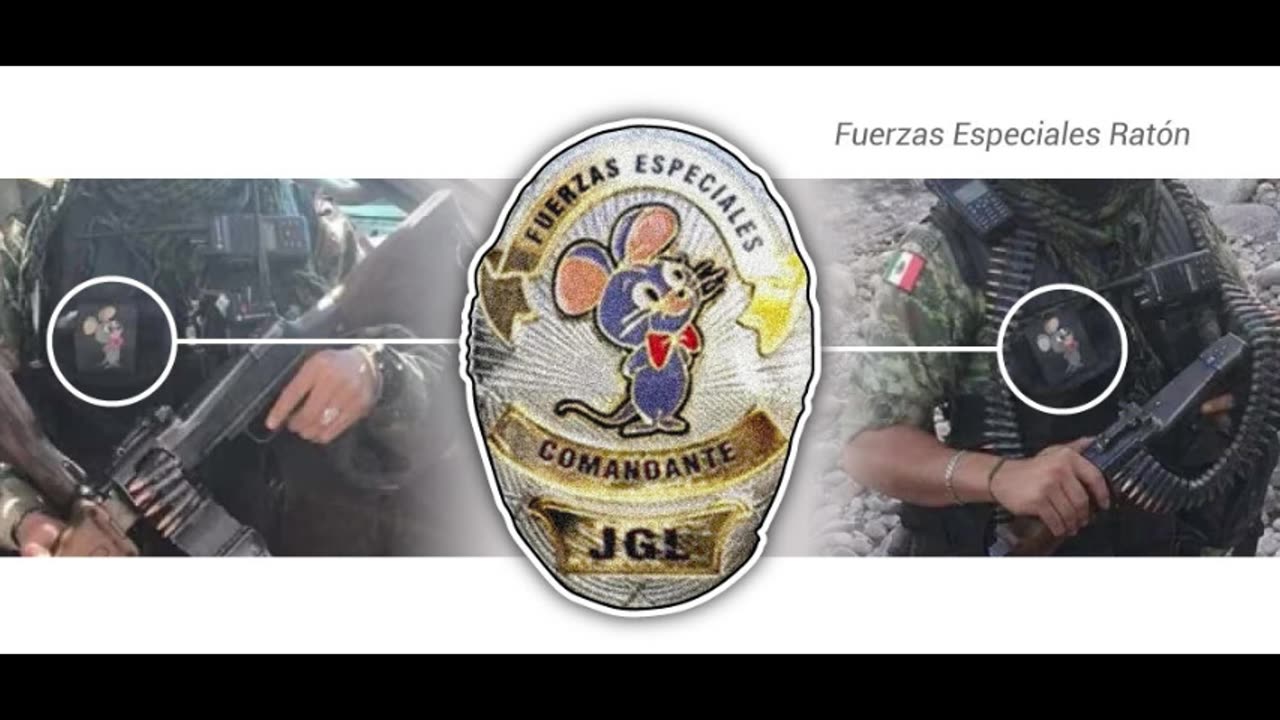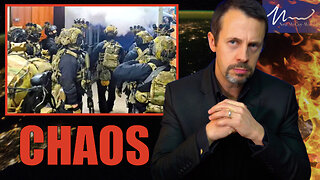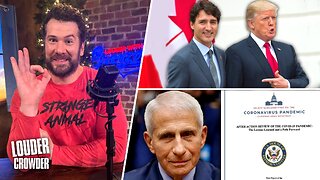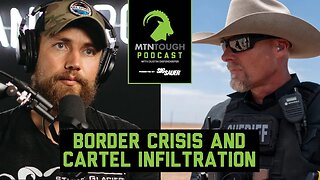Premium Only Content

Narco-Nationalism & Foreign Policy Segment 2-Mexico
Timeline of Main Events:
Early 2000s:
Myanmar's methamphetamine production begins to increase as China and the US pressure the Myanmar junta to suppress opium poppy cultivation.
Chinese legal and illegal economic enterprises, often supported by Chinese regional government officials, become heavily involved in Myanmar's illicit economies, including drug trafficking.
2000s:
Under Joaquín "El Chapo" Guzmán Loera’s leadership, the Sinaloa Cartel begins developing import and export networks in the Asia-Pacific region, focusing on securing methamphetamine precursors from Chinese triads in Hong Kong.
Early 2010s:
China cracks down on domestic methamphetamine production.
Myanmar becomes Asia's primary meth producer, supplied by precursor chemicals from China.
October 2011: Two barges carrying Chinese nationals and methamphetamine are attacked on the Mekong River, prompting China to demand a crackdown on piracy and expand its armed law enforcement presence in the region.
China pressures Myanmar to arrest and extradite notorious Mekong pirate Naw Kham, who is later executed in China.
2014:
India amends its Narcotic Drugs and Psychotropic Substances Act, categorizing fentanyl as an essential narcotic drug and loosening controls for pain medications.
Mid-2010s:
Australia's methamphetamine market, previously supplied by China, shifts to primarily sourcing from Myanmar.
A series of record-breaking cocaine seizures begin taking place in Australia as Los Chapitos, sons of El Chapo, increase efforts to build up cocaine markets in the region. CJNG follows suit.
November 2015: Australia and China establish Task Force Blaze, a joint bilateral counternarcotics task force, which achieves successes in intercepting meth shipments and arresting traffickers.
2016-2021:
Myanmar experiences a democratic period, but the Aung Sang Suu Kyi government shows little interest in suppressing methamphetamine production and trafficking.
The Sinaloa Cartel begins selling Mexican meth into Australia and New Zealand, directly competing with the Chinese triads. CJNG follows suit.
2018:
Wan Kuok Koi, a leader of the 14K Triad linked to drug and human trafficking, establishes the World Hongmen History and Cultural Association in Cambodia.
May 2019:
Following Xi Jinping's announcement, China schedules the entire class of fentanyl drugs, requiring special permits for their production, sale, and export.
Direct fentanyl smuggling to the United States declines dramatically.
2019-2020:
The Myanmar junta occasionally conducts meth raids targeting pro-government militias that challenge its authority or become too powerful.
January 2020:
The United States and India conduct Operation Broadsword, jointly inspecting shipments containing illegal drugs, including opioids, leading to the seizure of millions of illegal tablets.
India and the United States establish a bilateral Counternarcotics Working Group to combat synthetic opioids, other drugs, and their precursors.
2020-present:
US-China relations deteriorate, leading to a downturn in counternarcotics cooperation between the two countries.
The COVID-19 pandemic disrupts drug trafficking routes, but methamphetamine production and trafficking from Myanmar continue.
February 2021:
A military coup takes place in Myanmar, leading to widespread instability, a resurgence of armed ethnic conflict, and a decline in the junta's anti-methamphetamine operations.
Large seizures of methamphetamine are made in Myanmar, suggesting either increased production or more effective interdiction efforts.
Tse Chi Lop, leader of the Sam Gor syndicate, is arrested in the Netherlands, with two of his top deputies arrested in Thailand in late 2020 and early 2021.
Late 2021:
China, facing criticism for being a source of methamphetamine precursors, increases its regional anti-crime efforts and begins sharing information about suspect companies with some Southeast Asian countries.
Early 2022:
Despite China's border closure with Myanmar and increased enforcement, methamphetamine continues to flow from Myanmar into neighboring countries, with its potency undiminished and prices reduced.
The Mexican Navy's (SEMAR) on-sea capacity declines as its personnel are increasingly assigned to land-based anti-crime and counternarcotics operations.
Mexican drug trafficking groups exploit the lack of SEMAR's presence to offload precursors and cocaine onto ships from China and Latin America.
Cast of Characters:
Cartels & Criminal Organizations:
Sinaloa Cartel: A Mexican drug cartel known for its global reach and sophisticated operations, led by Joaquín "El Chapo" Guzmán Loera until his arrest. His sons, Los Chapitos, have since taken on more prominent roles, driving a more aggressive expansion into Asia-Pacific meth markets.
Cartel Jalisco Nueva Generación (CJNG): A newer but rapidly growing and violent Mexican cartel, aggressively competing with the Sinaloa Cartel for territory and markets in the Americas and increasingly globally. CJNG has been expanding its presence in Guatemala and replicating the Sinaloa Cartel's focus on exporting cocaine to Australia and New Zealand.
14K Triad: One of the largest Chinese triads based in Hong Kong and Macau, involved in drug and human trafficking, racketeering, illegal gambling, and other criminal activities. Wan Kuok Koi, a prominent leader, has been indicted by the US for corruption and racketeering.
Sun Yee On: Another large and powerful Chinese triad involved in methamphetamine production and trafficking, collaborating with the Sinaloa Cartel to supply precursors.
Sam Gor Syndicate: Led by Tse Chi Lop until his 2021 arrest, the dominant East Asian organized crime syndicate controlling a significant portion of the regional methamphetamine market. The syndicate operates in East and Southeast Asia, Australia, and the Pacific, known for its resilience and non-violent approach compared to Latin American cartels.
Individuals:
Joaquín "El Chapo" Guzmán Loera: Former leader of the Sinaloa Cartel, known for pioneering the cartel's expansion into Asia-Pacific.
Los Chapitos: Sons of El Chapo who have assumed leadership roles within the Sinaloa Cartel, driving a more aggressive expansion into Asia-Pacific meth markets.
Tse Chi Lop: Former leader of the Sam Gor syndicate arrested in 2021, considered one of the world's most significant drug kingpins.
Wan Kuok Koi (Broken Tooth): Former leader of the 14K Triad, indicted by the US for corruption and racketeering. He has ties to the Chinese Communist Party and used his organization to legitimize criminal activities and further China's influence abroad.
Naw Kham: Notorious Mekong pirate and key player in expanding meth trafficking throughout Southeast Asia. He was arrested in Myanmar under pressure from China and executed in China for the murders of Chinese nationals.
Governments & Organizations:
China: Plays a complex and often self-serving role in regional counternarcotics efforts. While outwardly promoting a tough stance on drugs, China has been a major source of precursor chemicals used in methamphetamine production in Southeast Asia. China has taken some steps to address precursor chemical flows and increase regional law enforcement cooperation, but its actions are often limited and prioritized for its own geopolitical and economic interests.
United States: Has been at the forefront of international efforts to combat fentanyl and methamphetamine trafficking, but its cooperation with China has deteriorated in recent years. The US has had more success collaborating with India on counternarcotics efforts.
Australia: Heavily impacted by methamphetamine trafficking from Southeast Asia, previously from China and now primarily from Myanmar. Australia has invested heavily in building law enforcement collaboration with both China and the US.
Myanmar Junta: The military government in Myanmar that seized power in the 2021 coup. The junta has been accused of profiting from and allowing the methamphetamine trade to flourish.
United Nations Office on Drugs and Crime (UNODC): A UN agency that monitors and reports on global drug trends and assists countries in their counternarcotics efforts.
Association of Southeast Asian Nations (ASEAN): A regional intergovernmental organization that has been increasingly active in addressing transnational crime, including drug trafficking.
Financial Action Task Force (FATF): An intergovernmental organization that develops and promotes policies to combat money laundering and terrorist financing. The FATF has criticized China for its inadequate anti-money laundering measures.
This timeline and cast of characters highlight the complex and interconnected nature of the drug trade in Southeast Asia and the Asia-Pacific region. The involvement of powerful criminal organizations, coupled with the political and economic interests of nation-states, creates a challenging environment for tackling the drug problem.
-
 LIVE
LIVE
TheAlecLaceShow
2 hours agoHunter Biden Pardoned | Who’s Next? | Kash Only | Racism | Guest: Franck Zanu | The Alec Lace Show
140 watching -
 LIVE
LIVE
G2G Gaming Channel
5 hours agoI heard Smite, So Im here! #RumbleTakeOver #RumbleGaming
230 watching -
 DVR
DVR
Neil McCoy-Ward
1 hour ago🚨 Emergency Martial Law Declared, Special Forces Deployed...
32 -
 LIVE
LIVE
The Charlie Kirk Show
1 hour agoDemocrat Billionaires in Crisis + Fixing the Migrant Crisis | Blagojevich, O'Brien, Metaxas| 12.3.24
8,396 watching -
 1:01:07
1:01:07
The Dan Bongino Show
3 hours agoBiden’s Reign Of Destruction Isn’t Over Yet (Ep. 2381) - 12/03/2024
495K1.01K -
 1:59:02
1:59:02
Steven Crowder
4 hours ago🔴 COVID Chronicles: The Hidden Truths of the Pandemic Exposed
286K173 -
 LIVE
LIVE
SoundBoardLord
2 hours agoMulti-Gen Don Juan in Full Force!
219 watching -
 1:08:54
1:08:54
MTNTOUGH Fitness Lab
2 hours agoSheriff Mark Lamb Exposes America’s Border Crisis and Cartel Infiltration | MTNT POD#93
8561 -
 8:52
8:52
Cooking with Gruel
11 hours agoToasted Brown Butter Cornbread
3.61K -
 1:01:44
1:01:44
The Rubin Report
2 hours agoJon Stewart Loses His Cool with Democrats for Saying This About Hunter Biden Pardon
32.3K32